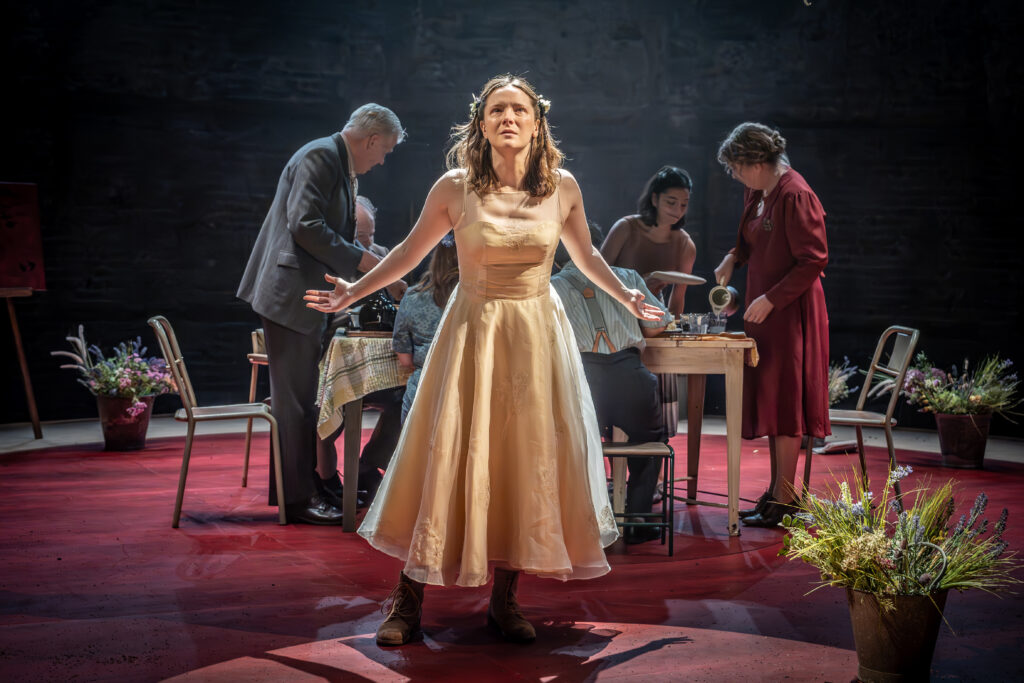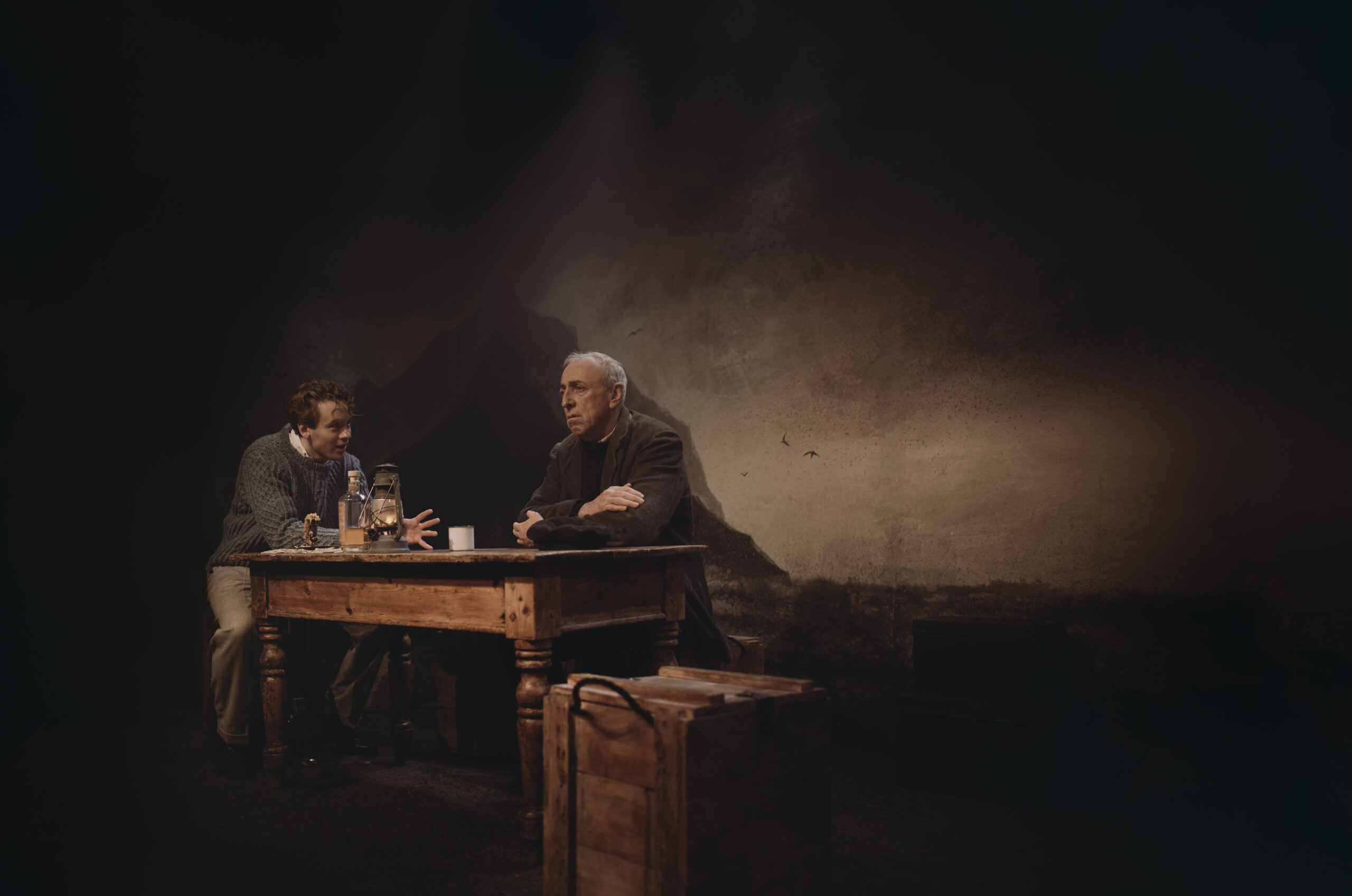
The reviews are in for Roots – half of the Almeida’s Young & Angry season alongside Look Back in Anger.
Diyan Zora (English) directs Morfydd Clark (The Lord of the Rings: The Rings of Power) in a new production of Arnold Wesker’s lyrical, impassioned play about a young woman’s journey to self-discovery.
Take a look at what the critics are saying below:
The Arts Dispatch ★★★☆☆
“Though Beatie seems to rage, she is initially bound by the views of the unseen Ronnie who makes himself ever present through Beatie’s impassioned – though performative – quotations of his socialist-tinged monologues, picked out by Lee Curran’s (lighting designer) spotlight: it is his second-hand raging we see, not hers. This is a woman’s shape being defined by a man; and even when her own revelation comes, it is essentially Ronnie who provided with her the means to find it. And despite the modern staging, it feels every inch a period piece.”
The Guardian ★★★★☆
It is a static play but there are masterful subtleties around class and interplay of characters built into its pace, alongside humour. The rhythms of working-class life are intricately caught too, from the cooking to the noting of buses passing the house by Beatie’s mother (Sophie Stanton).
The Times ★★★★☆
“Morfydd Clark is utterly convincing in this role. Beatie’s tragedy is that she patronises her folks yet has acquired all her new values from a bohemian boyfriend, Ronnie, whom we never see but who clearly treats her as mere clay to be moulded.”
Evening Standard ★★★☆☆
“Director Diyan Zora has the stage revolve very slowly – life goes on and never changes – while cast members offer up props from beside the stage as needed, conjuring a sense of community.”
Time Out ★★★☆☆
“[Morfydd] Clark is superb – in a break from her grumpier Rings of Power and Saint Maud image, she really injects a lot of warmth and niceness into the role; despite parroting some of Reggie’s overbearing wisdom, Beatie is never truly condescending to her family, and when she finally snaps at her stubborn mum Mrs Bryant (Sophie Stanton) it comes from a palpable place of unhappiness.”














